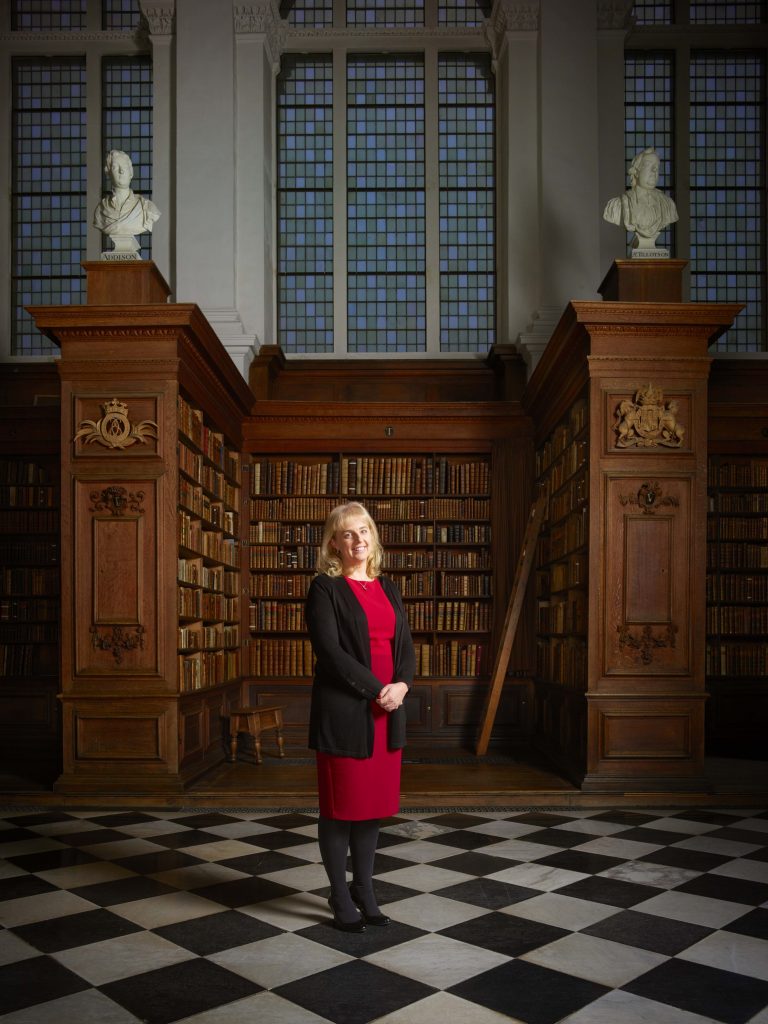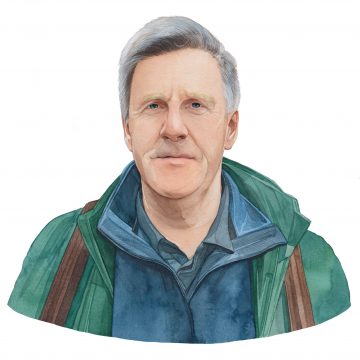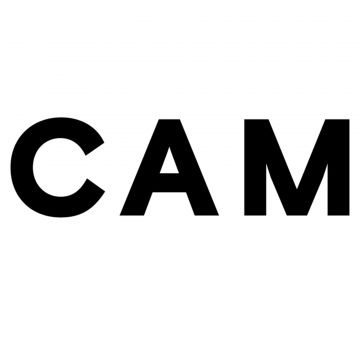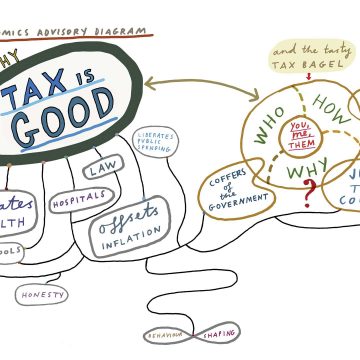Legal Brexit
I want to talk about the facts now, not analyse what went wrong in 20 years’ time, says Professor Catherine Barnard, Professor of EU Law and Senior Tutor at Trinity
“It looks as though we’ve had a particularly raucous party in here, but I assure you we haven’t!” Catherine Barnard’s rooms at Trinity do indeed resemble a cross between a campaign headquarters on election night and the aftermath of one of the better kinds of Formal Hall.
She laughs as she ushers out a colleague on College business, sweeps past a huge table piled with half-eaten sandwiches and cake, answers a call from The Independent newspaper looking for a quote, and leaves her door, appropriately, wide open.
We’re here to talk about Barnard’s specialism – European Union law – a subject that has become an extremely hot potato in the wake of a certain election night in June 2016. It put Barnard on the frontline. EU law is unique in the international legal order, governing, as it does, 28 (soon 27) vastly different countries at once. It is dense and difficult. So, it is with admirable understatement that she says: “I believe in trying to communicate about law as simply as possible, and Brexit has required that in spades.”
“For a world-ranking university like Cambridge, free movement has been absolutely crucial to our success”
The issue has divided the nation and politics. Numerous Conservative ministers have resigned, some because they believe passionately that the Brexit the Government is planning is too hard, and others that it is too soft. The Labour Party is no less divided. And as we go to press, commentators agree mostly only that the Government’s negotiating position is unclear. So how do you even start to deal with that in legal terms? Barnard nods. “It’s really difficult. The text of the Withdrawal Agreement is 585 pages long, and that’s just the divorce… so, it’s very likely that the future deal will run into thousands of pages.”

Again, as we go to press, the divorce agreement is the only legally binding document that the UK will have in hand on ‘Brexit Day’ itself, and it covers three key areas: money, citizens’ rights and the Irish border question. And from 29 March onwards, and until those thousands of final deal pages are written, the UK will still be bound by laws it has rejected and decisions it no longer has a say in – or, in the case of no deal, a whole other set of agreements potentially built on WTO trading arrangements.
The job of reading mountains of small print, untangling the issues and then explaining it to the rest of us is one Barnard relishes. But what led her here in the first place?
Barnard smiles and admits to “a youthful sense of social injustice” before going on to mention her “inspirational” headteacher, Walter Roy, at Hewett School in Norwich. “I remember an MP came to visit who was talking quite a lot of nonsense and Mr Roy stood up, stopped the MP and said ‘Look, these are bright students, they need a straight answer’.” So straight-talking feels not just familiar, but right? “Yes, it is sort of what I do now.”
“All the discussion about having your cake and eating it, with ministers saying we will be in a better position post-Brexit, has hidden the truth of the matter”
Most of the talking nowadays comes via Barnard’s role as Senior Fellow at The UK in a Changing Europe. This programme, run by the Economic and Social Research Council (ESRC), is designed to bring together impartial academic research on the changing UK-EU relationship and, crucially, to make it accessible and available to everyone.
Barnard initially applied for the project in 2015, intending to research the experience of migrants to the UK and whether or not it was a desire to claim benefits that drew them to the UK. Once in post, she was warned there would be “a bit of public engagement”, but she quickly realised that outreach events and the attendant social media work would turn out to be the most essential part of her role.
“Being public about Brexit has put me in quite difficult positions at times, and of course it’s not what academics normally do, so it’s also a different way of doing academia,” she says. “But I would say that Brexit is the biggest crisis facing the country since the Second World War and it’s in my field. I think it’s important to be out there talking about it now – rather than writing a learned book in 20 years’ time discussing what went wrong.”
“The text of the Withdrawal Agreement is 585 pages long, and that’s just the divorce… so, it’s very likely that the future deal will run into thousands of pages”
Leavers point to two particular aspects of EU law as contentious; interestingly, these are precisely the areas Barnard finds most exciting. “First, EU law has direct effect, which means it is enforceable by individuals in national courts and they don’t have to wait for the state to intervene on their behalf. Second, it has supremacy over national law, which means it takes precedence over conflicting national law. Both of these have enabled lawyers to do creative things to bring about change in the domestic system.”
Having cake and eating it
Writing recently in The Guardian, Barnard noted that “everyone’s an expert on the EU now that the UK is leaving”. I suggest that for someone who actually is an expert on the EU, that must be irritating. Does she find herself shouting at the television?
“The ones I tend to shout at are the politicians, on both sides, who say a string of things, each one legally incorrect and often inconsistent,” she says. “Even the Prime Minister insists that, with her deal, we would no longer be under the jurisdiction of the Court of Justice, but there are 70 references to the Court of Justice in the Withdrawal Agreement. And David Davis said that we’d have the future deal done by 29 March 2019, but that was never going to be the case.
“The ones I tend to shout at are the politicians, on both sides, who say a string of things, each one legally incorrect and often inconsistent”
“And, likewise, doing deals with other countries: Liam Fox said we’d have 40 or so deals rolled over by 29 March. Only a handful have been delivered. These are politicians who have a lot to answer for, because they told the public this would be easy. And the trouble is that all the discussion about having your cake and eating it, with ministers saying we will be in a better position post-Brexit, has hidden the truth of the matter.” Although her outreach work, legal training and teaching require her to be strictly impartial, it is on the truth of this matter that Barnard’s other day job comes into play.
“As Senior Tutor at Trinity I’m responsible for the admission, welfare and graduation of 1,100 students. I’m also responsible for the appointment of all our teaching fellows. We have some outstandingly good EU students here – but if you’re a brilliant Hungarian mathematician, do you come to Cambridge where, post-Brexit, you may have to pay overseas fees and go through a visa process that is unpleasant, or do you go to the US where there is still the unpleasant visa process but you’ll have a lot of money thrown at you too? Or, do you go to Germany where it’s frictionless?”
Visas
The visa regime for EU nationals is currently non-existent, and Cambridge has been part of a pilot scheme for UK universities where academics already in post can apply smoothly for indefinite leave to remain (this scheme has now been opened up to all EU migrants). Nonetheless, Barnard admits that the shape of post-Brexit immigration policy does keep her awake at night.
“For Cambridge, the best future immigration policy is one as close as possible to what we’ve got at the moment, but that’s not what’s being proposed. And the biggest sales pitch that Theresa May has got, and it’s the number one issue she mentions every time she’s trying to sell the Brexit deal, is ‘We’re bringing an end to free movement’. Now while I fully accept that for some people this is really important, and indeed it’s probably the main reason why people voted to leave, for a world-ranking university like Cambridge free movement has been absolutely crucial to our success. So we have got to find a way to remain attractive to staff and students alike. We are doing a lot of thinking about this now.”
For Cambridge, the best future immigration policy is one as close as possible to what we’ve got at the moment
Over the past two and a half years, Brexit, in a deeply British way, has provided ample doses of the surreal, the chaotic and the confusing. But with the digital counter on the homepage of The UK in a Changing Europe ticking inexorably down to exit day itself, I ask Barnard if she can have a stab at predicting how it will all end? “Leaving the EU is obviously causing a lot of difficulties, but actually reconstructing some sort of relationship will also raise a lot of interesting legal issues, not to mention the social and economic consequences,” she says.
Her work, therefore, may have only just begun. And her next appointment is already knocking at the door of her office. But we have a final attempt at summing up. Brexit in five words or fewer? Already on the move, Barnard offers three: “Complex. Vertiginous. Divisive.”
Learn more about the latest analysis and FAQs from the University and academics.







